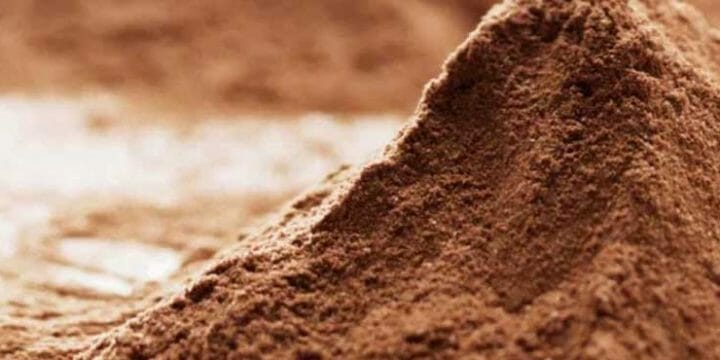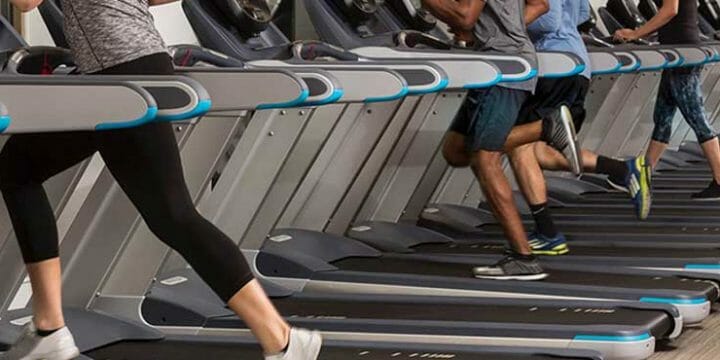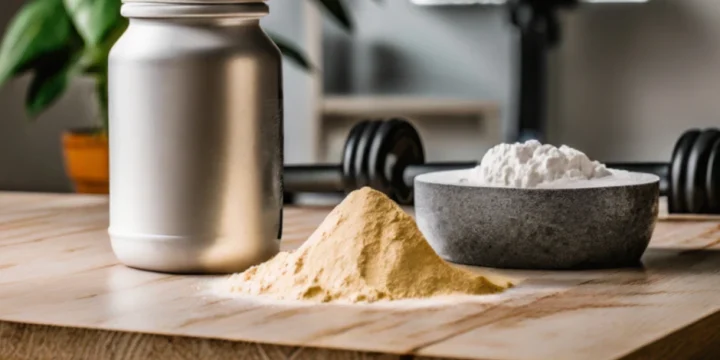I've heard some of my clients talk about how they get better performance when they increase salt intake just before a workout.
Being in the bodybuilding world for years, I had a good understanding of why that happens, but I wanted to dive deeper so I could educate my clients and readers.
So, my team and I did the research and consulted a dietician. This is what we found out about salt as a pre-workout supplement.
Quick Summary
- Salt can be used as pre-workout as it enhances better blood flow, improves overall power, and enhances an individual's stamina levels.
- You can take salt as a pre-workout by taking it plainly, or by adding it to a meal a few hours before working out.
- One teaspoon of sea salt contains about 2300mg of sodium which is the recommended daily dose by the According to the US Food and Drug Administration.
- From my experience, a well-timed dash of salt can give you that extra edge in your workout when you need it most.
How Should You Use It as a Pre-workout?
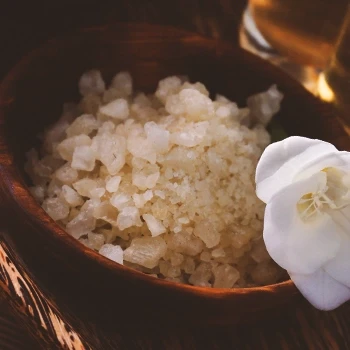
Use salt as a pre-workout in two ways: plain salt or as part of a salty meal a few hours before exercising. If it's in a meal, eat 2-3 hours before your workout.
Timing is key. Consuming salt too close to exercise can make you sluggish or cause digestive issues. But timing it right enhances performance, similar to the 'pump' difference you feel after a junk-food meal.
For plain salt, dissolve ½ teaspoon in 400-500 ml of water just before the workout for quick sodium absorption.
Doctor of Pharmacy, Dr. James DiNicolantonio, suggests different doses of salt preloading in:
- Moderate climates - ½ teaspoon
- Hot climates - ½ to 1 teaspoon
- Very hot climates - 1 to 2 teaspoons
Salt pills or electrolyte supplements can also provide pre-loading.
Some gym enthusiasts add salt to pre-workout supplements containing creatine. Sodium helps creatine enter cells more efficiently, boosting energy and stamina.
A Wiley Online Library study shows that an 85% drop in sodium leads to 85% less creatine uptake [1]. Regarding salt types, Himalayan, sea, or table salt are all fine. The American Thyroid Organization advises choosing iodized salt for thyroid health.
Related Articles: How To Make Homemade Pre-workout
What Are The Benefits of Salt as a Pre Workout?
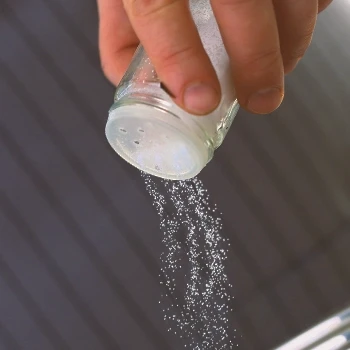
Salt, which is 40% sodium, offers unexpected workout benefits. Normally, exercise thickens your blood as it moves from the heart to the muscles.
Yet, sodium can boost blood volume and flow, improving oxygen supply to muscles and the heart, as shown in American Heart Association Journals [2].
Sodium's ability to pull water into cells, a concept also seen in Ayurveda, can enhance muscle contractions and pumps.
According to 2018 National Journal of Medicine research, it also balances body fluids, preventing muscle cramps through pre-workout intake [3].
As per The Collegiate and Professional Sports Dietitians Association, we lose an average of one liter of sweat when we work out during the workout [4]. The liter of sweat contains approximately:
- 18 mg of magnesium
- 60 mg of calcium
- 200 mg of potassium
- 900 mg of sodium
I've personally observed improved endurance and energy on days with extra pre-gym salt. This pre-dosing keeps my electrolyte levels healthy, reducing muscle cramps and fatigue.
Plus, it may lower muscle arrhythmia risks and boost cardiovascular health, further encouraging its use in my fitness routine.
Are There Any Side-Effects?

Though too much sodium can elevate blood pressure, it's a myth that salt always dehydrates. Controlled pre-workout salt intake actually helps maintain fluid balance, according to National Institutes of Health reports [5].
As a personal trainer, I've seen moderate pre-workout salt use consistently improve hydration during intense workouts.
However, the National Library of Medicine warns that excessive sodium can lead to cardiovascular issues like heart attacks, enlarged hearts, strokes, kidney disease, and headaches [6].
One teaspoon of sea salt contains about 2300mg of sodium. According to the US Food and Drug Administration, this is the recommended daily dose [7].
However, the best way to avoid negative sodium impacts is to monitor your daily intake as closely as you can.
FAQs
Is Sodium Good for Muscle Recovery?
Sodium may be good for muscle recovery. Some authors suggest that salty water will aid rehydration by replenishing sodium and quickly restoring the normal volume of blood after the training session. That way, muscle tissue can be provided with nutrients and oxygen, leading to better recovery.
Why Do Bodybuilders Stop Eating Salt Before Competitions?
Bodybuilders stop eating salt before competitions to avoid water retention and bloating in order to look shredded. They usually wholly remove sodium two days before the competition. If they do it too early, the body will adapt to low-sodium and won't change the fluid balance.
Does Sodium Make You Fat?
Yes, sodium can make you fat if you consume too much of it. Long-term effects possibly occur from the connection between a high-sodium and a high-calorie diet.
References:
- https://onlinelibrary.wiley.com/doi/abs/10.1111/j.1748-1716.1967.tb03716.x
- https://www.ahajournals.org/doi/pdf/10.1161/01.CIR.43.4.508
- https://pubmed.ncbi.nlm.nih.gov/29710036/
- https://www.sportsrd.org/wp-content/uploads/2018/11/Whats-In-Your-Sweat.pdf
- https://www.ncbi.nlm.nih.gov/pmc/articles/PMC7763082/
- https://pubmed.ncbi.nlm.nih.gov/31865786/
- https://www.fda.gov/food/nutrition-education-resources-materials/sodium-your-diet
About The Author
You May Also Like



